The History of Hachimantai City
The History of Hachimantai
A town living on the cutting edge of sustainability
A town living on the cutting edge of sustainability
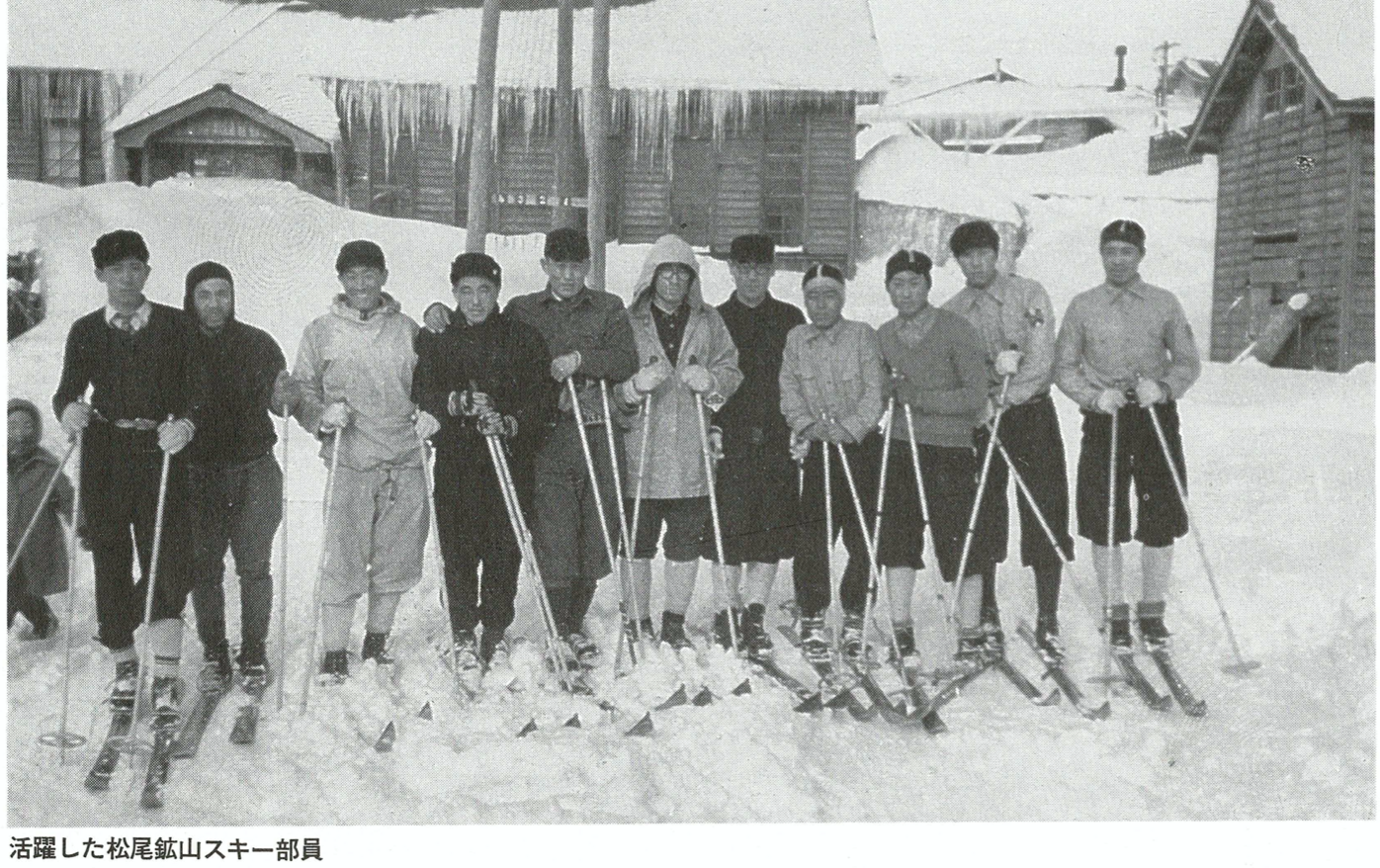
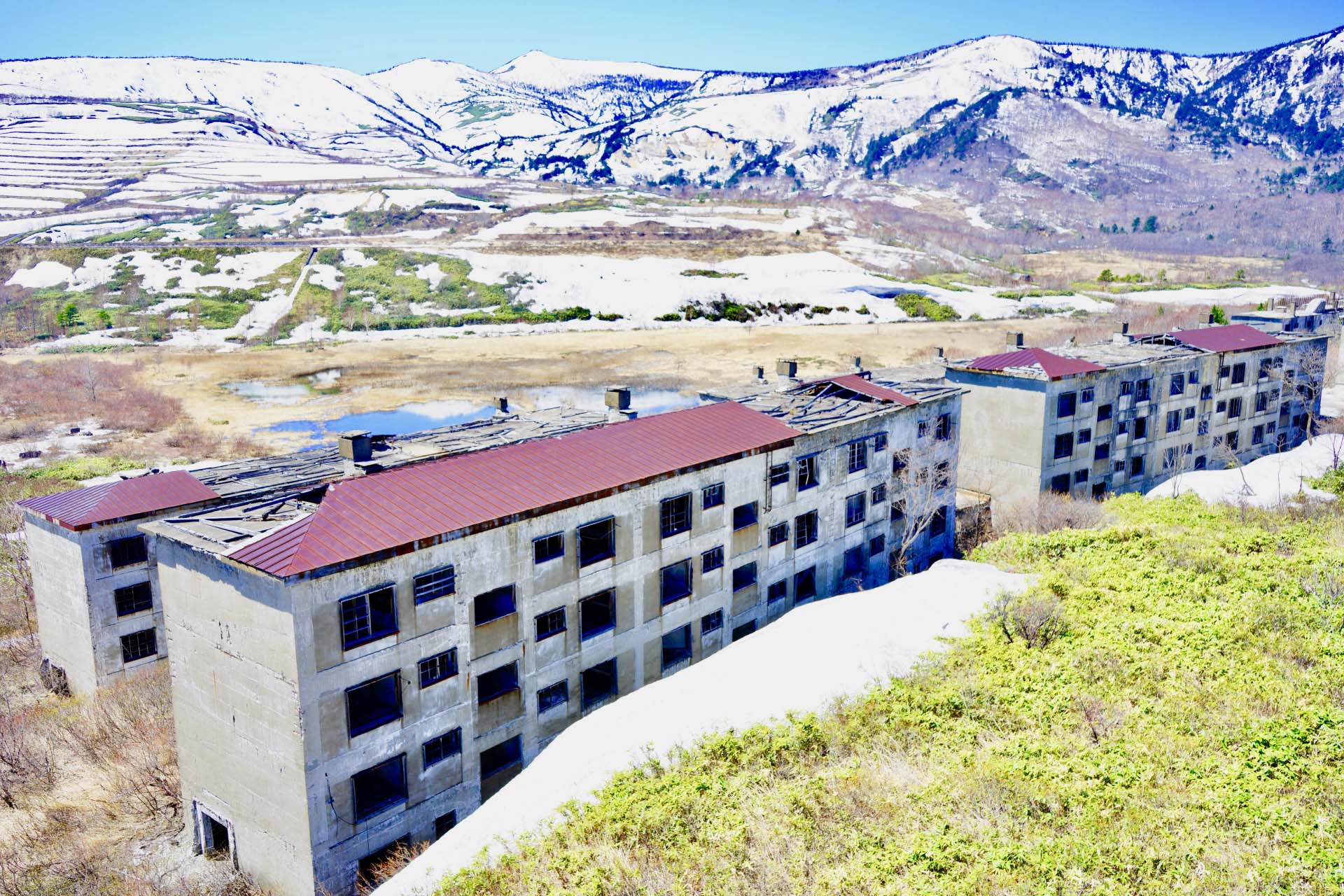
Around 1955, as the situation began to worsen for the mine, people looked towards tourism as the next big industry, and began drawing up plans for rest areas. Drilling was carried out in the Matsuo Onsen area, but out of four drilling sites, only one turned up a functional hot spring; the rest were only steam geysers.
But Japan was doing extremely well, economically. Adoption of electronic appliances was growing rapidly, and with it an increased demand for electricity. The Matsuo Village chief thus made a suggestion: why not try using geothermal power to meet supply demands? Working together with researchers and engineers, an investigation and survey was carried out towards that very end. And thus eventually, on January 14th, 1964, the first geothermal steam pipe went into operation, and this area’s now-storied history with geothermal power began. Soon after in 1966, the Matsukawa Geothermal Power Plant became Japan’s very first geothermal plant in operation. Using clean energy from the ground, Matsukawa has continued to operate for over 50 years, and remains in operation even today, in 2021.
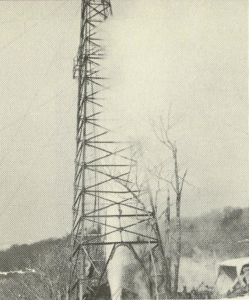
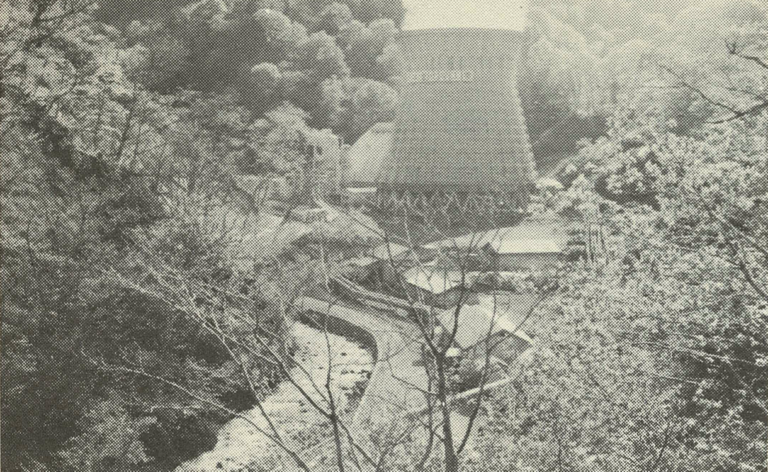
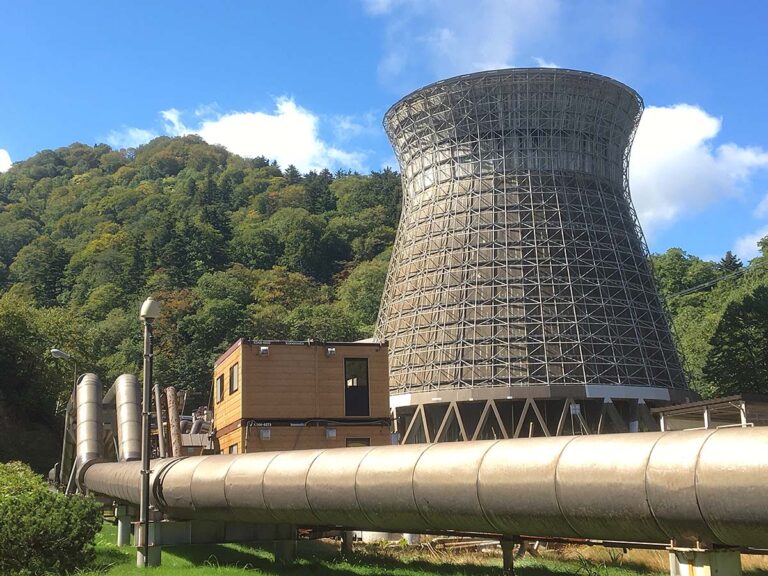
By the 1970s, the Matsukawa geothermal plant had installed about six kilometers’ worth of spring water piping. This bounty encouraged one attraction after another to crop up, including Hachimantai Heights, the Hachimantai Onsenkyo, and later in 1981, the Appi Kogen Ski Resort.
On January 1st, 2019, the city’s second geothermal power plant, the Matsuo-Hachimantai Geothermal Power Plant, began operation. Furthermore, according to the New Energy and Industrial Technology Development Organization (NEDO), there yet remains a large store of geothermal energy under the Appi area. Thus, construction of a third power plant, the Appi Geothermal Power Plant, is already progressing.
Today, Hachimantai City is something of a specialist when it comes to borrowing the bounty and power of nature. In addition to making full use of clean geothermal power, sustainable agriculture and farming practices are constantly being developed. Basil cultivation uses cutting-edge Internet of Things (IoT) technology, and steam from underground is even harvested in innovative cloth dyeing techniques. It’s a place that makes full and responsible use of the earth’s natural resources.
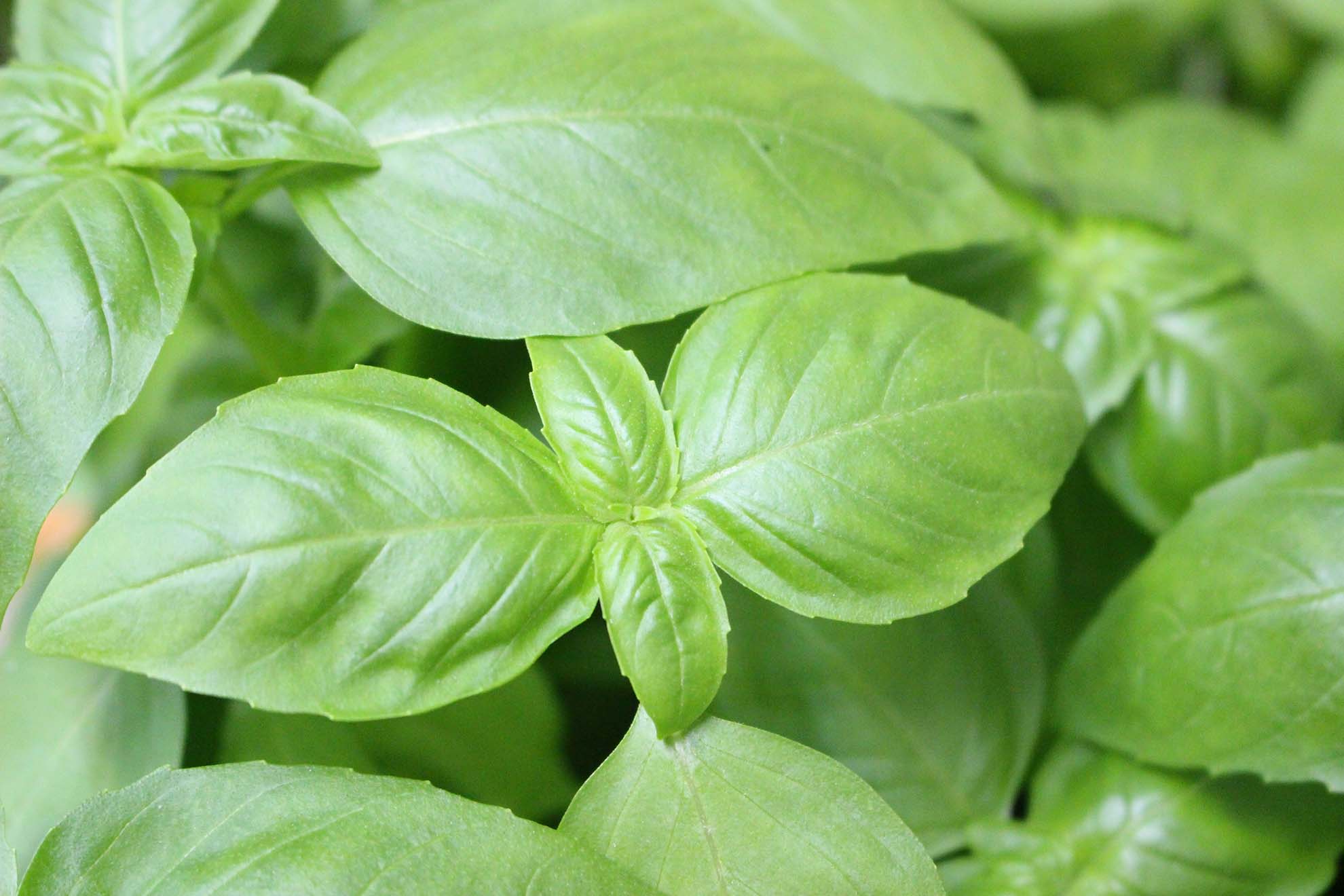

Japan’s first Harrow International School, a British institution, is set to open in Appi in August 2022 as Harrow International School, Appi Japan. Hachimantai continues to progress into the future as a resort and natural hot spot.
